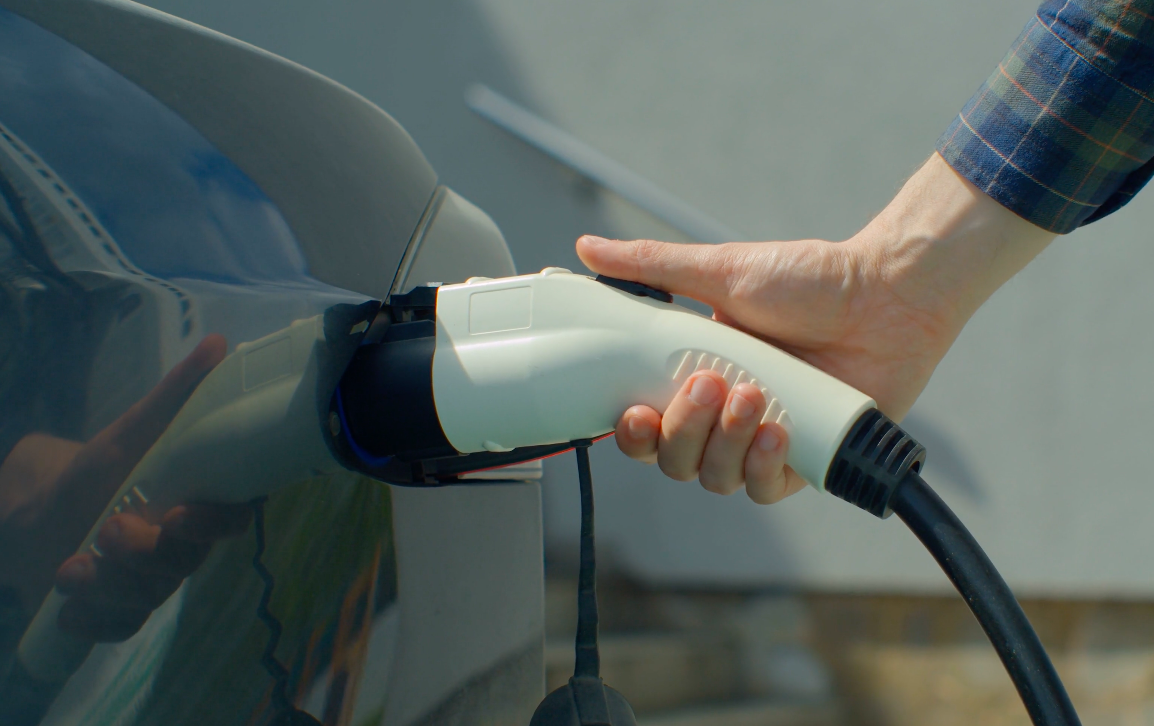Swedish carmaker Volvo announced this week that it will no longer phase out all petrol and diesel sales by 2030 as previously planned. This could be a canary in the EV coal mine.
Volvo was until this week one of the most ambitious established carmakers when it comes to adopting all-electric battery-powered technology.
According to its now-altered plan, all of its global sales would be battery-electric as of 2030. Petrol, diesel and plug-in hybrids would no longer be manufactured and the next decade would be purely about electrons for the firm.
But nothing is certain in life, as they say. Volvo said this week that it is now planning for between 90% and 100% of its sales to be ‘electrified’ vehicles as of 2030, in what is a clear ratchet down of ambition.
That also opens the door for plug-in hybrids to remain a part of the mix, so the internal combustion engine will live on with Volvo for at least a couple of years in the 2030s, maybe longer.
So what caused this change of direction?
Volvo cited changeable market conditions when explaining the new policy, but did insist that it still sees the future as electric. It is just that the future will have to wait a bit.
“It is clear that the transition to electrification will not be linear, and customers and markets are moving at different speeds,” said the company’s CEO. Volvo also expressed concern at the pace of charging infrastructure rollout.
Electric vehicle sales are not collapsing, as many tabloids would have us believe, but it is true that in some markets they have slowed, after purchase subsidies were reduced or eliminated. Germany is a prime example of that.
There is also the European Union’s policy role to consider here, as it may have made a huge impact on Volvo’s decision.
Brussels meddling?
Under the current set of emissions-slashing rules for road transport, 2025 is the next big benchmark for carmakers. Many are actually holding back their next wave of electric cars in anticipation for next year, as it will make their emission reduction efforts seem greater.
Many market analysts point to this simple fact when asked why 2024 has not been a vintage year for electric vehicle sales. "Just wait 12 months and you'll see," was one response. Greater volume and greater choice in terms of models are coming.
But it is the policy for the 2030s that may be causing difficulty. When the legislation was being discussed by policymakers, there were calls for the law to make all sales of cars in the EU zero emission as of 2030. The so-called ‘engine ban’.
In the end, the date was set at 2035. Since the law was passed though, it has still been targeted by mostly rightwing politicians that believe it will hurt Europe’s competitiveness. It may be watered down further during this coming legislative mandate.
That cannot be healthy for the business plans of big companies like Volvo and its competitors. Uncertainty breeds doubt, which leads to fear, which perhaps leads to decisions like the one Volvo made this week.
Adding to this is the EU’s recent decision to slap extra import tariffs on electric cars made in China. Following an investigation, Brussels found evidence that the Chinese EV sector has unfairly benefited from state subsidies. The United States and Canada have done the same.
This affects Volvo because it is actually Chinese-owned and it falls under the Geely umbrella. Many of its cars are made in China and shipped to Europe, so these will be subject to the same tariff regime.
Depending on Volvo and Geely’s specific circumstances, they could pay less than other carmakers. Elon Musk’s Tesla has successfully negotiated a lower tariff rate for itself by providing extra information, for example. But the admin and financial burden, albeit reduced, remains.
So have the EU’s geopolitical industrial ambitions triggered this rethink by Volvo? It likely contributed to it, no doubt. When you add it to the full mix of policy doubts and differences, it creates understandable confusion.
The important thing to consider now is what impact Volvo’s reversal will have on the rest of the sector. Will other companies previously considered as EV pioneers follow suit and water down their commitments?
The end of the decade is approaching at speed and decisions need to be made now so that supply chains can adapt. It is a critical moment for the electric car sector.
Want more updates and analysis of what is happening in the world of energy and climate? Interested in finding a job in the sector or more information about public tenders? Sign up to our Energy Rundown newsletter here!

